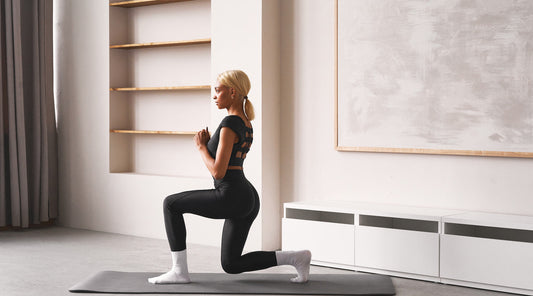If you’ve ever stumbled out of the office after a long day of sitting at your desk and felt that your shoulders and lower back were in pain, you’ve experienced one of the side effects of having a sedentary job. Staying in one place for such a large portion of the day is bad enough, but it becomes even worse if you don’t assume proper posture. Your desk job could be affecting your overall health and well-being.
We constantly seek ways to enhance our focus, efficiency, and output. However, posture is often an overlooked factor that can significantly impact our productivity. In this article, we delve into the connection between posture and productivity, exploring how proper alignment can unlock our full potential.
What are the main reasons for bad desk posture?
1. Not taking enough breaks
Research shows unless people are in jobs mandated to take breaks, they often force themselves to keep working without rest. This is especially common behavior from managers or freelancers. And break means you are doing walking or standing activities, not eating lunch while checking emails. This phenomenon contributes to bad posture because it forces people to remain in the harmful positions they already assume for the majority of the workday. Getting in the habit of taking an actual lunch break and using it to walk around is a good plan.
2. Lack of awareness about posture issues
No one trains desk workers how to seat properly. Do you care enough about how your desk is arranged, and when was the last time you tweaked your chair height? Another reason individuals with desk jobs often have poor posture is they don’t make the connection between how they’re sitting and possible painful side effects. Without intervention, you may be craning your neck, crossing your legs and sitting with your shoulders curved forward, collectively making a desperate attempt to feel more comfortable while getting stuff done. Wearing a posture correcting bra like Etalon can help to gain better awareness about your posture and train your back sitting straight.
3. Misunderstandings about how to strengthen core muscles
It’s crucial to develop a stronger core in order to get better posture as a result. Going to the gym and forcing yourself to lift progressively heavier weights often leads to bulkier muscles, but it won’t necessarily give you a stronger core that aids your posture. Join our free posture challenge to receive exercises that can help you improve core muscles and stretch properly.
4. Not taking preventative measures
Chiropractors report seeing a growing percentage of younger patients suffering from back pain and say the sedentary lifestyles many people lead does not help the matter. An aching back is often seen as a problem that affects elderly individuals. Based on that incomplete perception, people may not want to admit to themselves or others that they’re in pain. They also probably won’t realize that fixing the issue may be as easy as sitting up straighter. If desk workers are under the impression they are too young to be dealing with back issues and think their colleagues are doing fine, there’s a greater likelihood they’ll continue to try working in silence and handling the discomfort in ways that may only be masking the problem. The earlier you start to address potential threats to your back, the healthier and happier your life will be going forward.

What is a negative effect of a bad desk posture?
Heartburn
If you don’t sit up straight, the slumped position could interfere with digestion and give you heartburn. That resultant problem could cause so much distraction you have trouble getting things done.
Body’s efficiency limitation
Your body is built in a self-supporting way, so when it’s in proper alignment, tasks that could ordinarily become strenuous — such as standing — feel almost effortless.
Back pain
It’s probably not surprising that bad posture makes your back hurt worse, but you may be shocked to learn that an aching back is one of the top reasons why people go to emergency rooms. Sometimes, individuals ignore their back pain due to fear and get scared about seeking treatment because they think something is seriously wrong.
Reduced lung capacity
You may not immediately think of posture as something that affects how you breathe, but slumping could cut down on the amount you can fill your lungs by up to 30 percent. As a result, your body does not receive as much oxygen-rich blood, and you may experience side effects like difficulty thinking and shortness of breath — both of which could compromise your ability to get work done with a clear mind while feeling your best.
Decrease of assertiveness
Because so many people spend hours per day peering down at devices with small screens, some researchers are interested in determining if our fascination with gadgets has a negative impact on posture. As it turns out, a preliminary study has connected device size with assertiveness. Not being assertive enough at work could mean you take on more than you can handle simply because you’re not able to speak up and decline work. As a consequence, your quality level decreases.
Negative visual effect
People who spend a lot of time sitting at the computer or otherwise viewing content on screens often suffer from what’s called computer vision syndrome or digital eyestrain. Many factors contribute to it, and one is sitting with bad posture.
Some of the most common symptoms are eyestrain, dry eyes and blurred vision. Together, these issues could make it harder to read things on your computer, so you have to slow down and are not as productive.
People generally prefer to look at computers while gazing downward, so you may need to adjust your chair height slightly. By changing the viewing angle, you could promote better posture and reduce or eliminate the effects of computer vision syndrome.
Headaches
Health professionals have also pinpointed poor posture as a reason many people suffer from headaches in the afternoon. A position called forward head posture results when individuals sit with the neck more than an inch over the first vertebrae — also known as the atlas. For every inch of protrusion, the weight your neck bears increases by 10 pounds. The more tension you harbor in your neck, the more likely it is you’ll get a headache.
Solve this common problem by bringing your head to a neutral position while simultaneously pushing your chin forward in an exaggerated way. Straighten your spine while imagining someone is lifting you by the base of your skull, then pull your shoulder blades together and downward.

How good posture can improve productivity?
1. The Mind-Body Connection:
Before we delve into the specific benefits of good posture on productivity, it's important to understand the mind-body connection. Our bodies and minds are intricately linked, and changes in one can affect the other. When we adopt a slouched or hunched posture, it not only puts strain on our muscles and joints but also affects our mental state. Poor posture can contribute to feelings of fatigue, decreased focus, and even negative emotions, all of which can hinder productivity.
2. Enhancing Focus and Mental Clarity:
One of the key benefits of maintaining good posture is the positive impact it has on our focus and mental clarity. When we sit or stand with proper alignment, our bodies are in a more balanced and relaxed state. This allows for better blood circulation, which in turn improves oxygen and nutrient flow to the brain. As a result, our cognitive functions, such as memory, attention span, and problem-solving abilities, receive a boost. By optimizing our posture, we create an optimal environment for our brains to function at their best, leading to improved productivity.
3. Boosting Energy and Alleviating Fatigue:
Ever noticed how you feel more energetic and alert after sitting up straight? Good posture promotes efficient breathing, as it allows the lungs to expand fully and the diaphragm to move freely. This increased oxygen intake helps to invigorate the body and mind, combating the sluggishness and fatigue that often accompany poor posture. By maintaining an upright posture throughout the day, you can sustain higher energy levels, keeping productivity levels consistently high.
4. Enhancing Confidence and Assertiveness:
Posture goes beyond physical health and has a significant impact on our psychological well-being. When we exhibit good posture, we exude confidence and assertiveness. Proper alignment conveys a sense of self-assurance and professionalism, which can positively influence how others perceive us and how we perceive ourselves. Improved self-confidence can help overcome obstacles, facilitate effective communication, and encourage proactive behavior—all crucial elements for productivity and success.
5. Preventing Physical Discomfort and Pain:
It's no secret that poor posture can lead to physical discomfort and chronic pain, such as neck and backaches. When we are constantly distracted by bodily discomfort, our attention and energy are diverted away from the task at hand. By maintaining a correct posture, we align our spine, reduce unnecessary strain on our muscles and joints, and minimize the risk of developing musculoskeletal issues. A pain-free body translates into greater comfort, focus, and productivity.
While we often associate productivity with time management techniques, the role of posture should not be underestimated. By cultivating good posture habits, we can optimize our physical and mental well-being, leading to increased productivity and overall success. So, whether you're sitting at your desk, standing in a meeting, or even walking, pay attention to your posture and make the necessary adjustments. Embrace the power of proper alignment, and unlock your full potential in the pursuit of productivity.
Sources
https://www.asianefficiency.com/productivity/10-ways-posture-affects-productivity-improve/
https://www.forbes.com/sites/bryanrobinson/2021/08/24/3-posture-tips-to-improve-mental-clarity-job-productivity-and-career-success/?sh=5da45f204dda
Photo by cottonbro studio on Pexels
FAQs
How does poor desk posture affect productivity?
What are the most common causes of bad posture at work?
Can posture really influence my energy and focus?
What health problems can result from prolonged poor posture?
How can good posture improve confidence at work?
Do posture-supporting products like posture bras really help?
What simple steps can I take to maintain good posture at my desk?
Trending
Try Etalon posture improvement products








